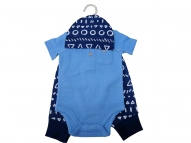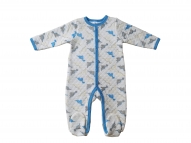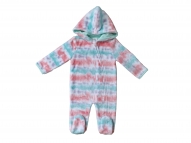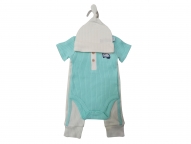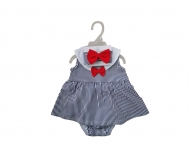Ashraful Islam
By now, this is known to all that the textile and clothing industry is going to pass the toughest time in the next few months due to the covod-19 after effects. Every business sector has been formidable effected by this epidemic and the world has never experienced such wide spread epidemic in its history. When everything is out of control still there are things that can be controlled. So, the future of Bangladesh textile and clothing industry verily lies on the leadership and strategic decision making of the leaders of the stakeholders. This article is designed to motivate and re-connenct our industry leaders to help them out mapping what are things to do as a leader to tackle the toughest situation the industry ever been in.
Because of the COVID-19 effect, apparel brands have already canceled more than 1000 crore taka orders from Bangladesh cited by Md. Qamruzzaman director of Functional Apparels Hong Kong. Commerce Minister Tipu Munshi said the government is fearing an adverse effect of the outbreak of novel coronavirus in China on Bangladesh’s readymade garment (RMG) sector. Bangladesh’s economy is also integrated with the global economy. The degree of trade openness in the economy is currently 38.24 percent. Countries such as Canada, the US, and the European Union are major export destinations for Bangladesh. So, economic effects on those countries will also have significant consequences for Bangladesh. The ADB has estimated that Bangladesh will lose about 1.1 percent of its GDP in the worst-case scenario—when the outbreak will last at least for six months. It implies that coronavirus can take away USD 3.02 billion from Bangladesh’s economy. This article tries to explain how Bangladesh textile leaders need to approach COVID-19 because they will be the most affected person aftermath of COVID-19.
Charting the progression of the COVID-19 crisis in Textile & Clothing sector
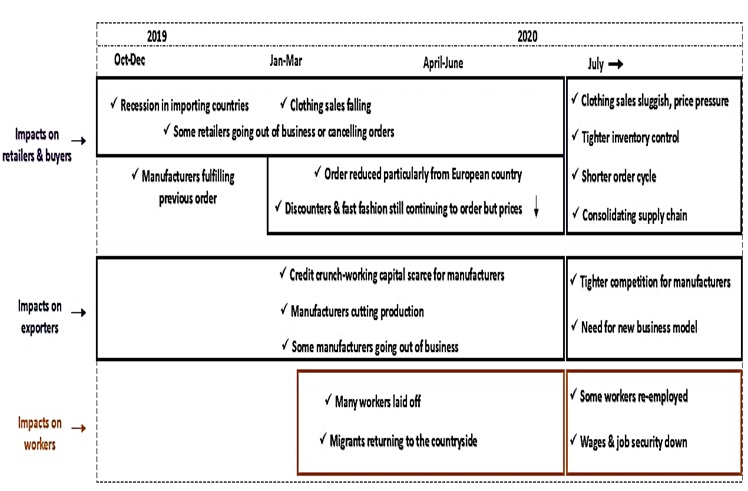
“If you fell yesterday, stand up today” – a famous quote from H.G. Wells. This quote has proven by our textile leaders. If we see the aftermath of the Rana Plaza collapse in the year 2013, we can see that our leaders overcome that incident with proper leadership decisions and action. Before that incident, we don’t have any green factory but nowadays Bangladesh has a major number of green factories around the world. If you see the following export data of Bangladesh textile export you have to consider that Bangladesh textile leaders have a great and thoughtful mindset & approach in a tough time.
During the current global recession, much attention has been devoted to the mistakes that sparked the financial and economic crisis, in hopes of not repeating them. The leaders of the textile industry may follow the following approaches-
Confront Reality
Those in the world who first detected and accepted the fact that something was amiss had a distinct advantage in implementing strategies to help weather the storm. It’s all too easy for a leader to say, ‘Don’t give me the more bad news. Just go fix it. But they have to beat back that kind of attitude and create an atmosphere where people feel they can talk about the forecast, how they can improve it, and what resources they might need. A lot of leaders are slow to react, and their problems get away from them. They have to get as much data as quickly as possible. But they will never get all of it—so they need to make decisions quickly.
Control Fear
Courage doesn’t mean the absence of fear, and of course, being a leader certainly doesn’t mean charging ahead blindly in the face of adversity. It does mean you can’t allow your fear to become contagious. Your team needs to believe you’re in control of yourself if they’re to have confidence that you can make smart decisions in tough times.
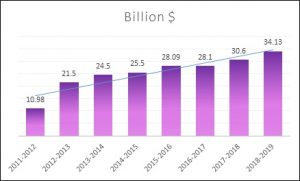 At Board meeting put strategy center stage
At Board meeting put strategy center stage
The world moves at a pace that requires a strategy to be front and center all of the time,” says NCR’s Bill Nuti. “There are too many variables that come into play in a normal cycle, let alone this one, that can rapidly change the course of your company, so I bring strategy up at every single meeting.” Eric Foss, of Pepsi Bottling. Many leaders have already accepted the need for frequent and open communication with their boards, a practice they say proves its worth when difficult decisions must be made. If directors are up to speed, they are better placed to offer both support and advice.
Be tough, but human
Your team needs to know that you’re tough, but also that you’re reacting to the world around you like an engaged leader, not a machine.
Use resources wisely
By consolidating supply chain & effective communication with team members, textile leaders need to use their resources wisely and precisely.
Be transparent with your employees
Being open about what is happening in a company is partly a question of integrity: employees deserve honesty. Openness also builds respect, trust, and solidarity, all of which in turn help employees stay focused on the task of running the business at a time when financial rewards might be limited and the future uncertain. Openness helps build morale as well. A leader cannot mislead people and certainly shouldn’t panic them, but explaining problems and the actions being taken to deal with them builds confidence in the quality of the leader’s leadership. “People will take any hill, walk into the worst situation if they have faith in your leadership and know what your strategy and objectives are,” says Tyco’s Breen- CEO of DuPont.
Be transparent with your Investors
In times of crisis, there can be a tendency to focus entirely on short-term results—a tendency leader should counter. While acknowledging current difficulties, it is just as important to emphasize what is being done to build a company’s longer-term health. Pepsi’s Foss too recommends transparency with investors: “we’re facing up to our issues” and in this way “demonstrating that we have a management team that knows what it’s doing.”
Keep faith with the future
Leaders and their leadership teams need to remain forward-looking despite the near-term pressures their businesses might be facing.
There are opportunities in a crisis, even though that notion is too lightly bandied around when companies and their employees come under real stress. Many of the leaders were determined to ensure that their companies emerge from this recession with a competitive advantage by setting the course for higher productivity, acquiring a footprint in a new market, or not squandering a company’s talent or reputation in pursuit of lower costs. Here is an example of former vice president of Cisco named Bill Nuti, which shows the power of keeping faith with the future- When Nuti arrived at NCR, in 2005, he was concerned that although the company was rightly focused on cost-cutting to regain profitability, it had no plan for the future. “My challenge, up to and including the last six to eight months, has been to keep driving the transformation of the company while still adapting to the realities of the present. You can’t cut the things that will impact your ability to reach your vision.” Nuti suggests using a scalpel rather than an ax. The ax will make the biggest dent on costs and make you look smart for a while. But the more precise scalpel can protect a company’s future, even if there are fewer short-term gains.
React is thoughtless but respose is thoughtful. During the current COVID-19 situation react doesn’t do any work. Only a true leader can approach a good response toward this uncertain situation. Bangladesh’s total economy depends on this textile sector. 84% of Bangladesh’s export income comes from the textile industry. At least 5 million people directly worked in this sector. In the current situation, a good approach and strategy can rescue this situation. Textile leader’s good response can be able to rescue such a uncertain situation like Rana Plaza collapse 2013. Textile leaders have already experienced how to approach & overcome a bad situation.
References
https://en.wikipedia.org/wiki
https://www.inc.com/billjr/7-leadership-lessons-from-the-seals-commander
https://www.inc.com/bill-jr-things-great-leaders-do-in-difficult-times
https://www.inc.com/how-super-bowl-players-succeed-in-business
https://www.inc.com/bill-murphy-jr/9-things-great-leaders-do-in-difficult-times
Management tools survey 2003: usage up as companies strive to make headway in tough times – Darrell Rigby




